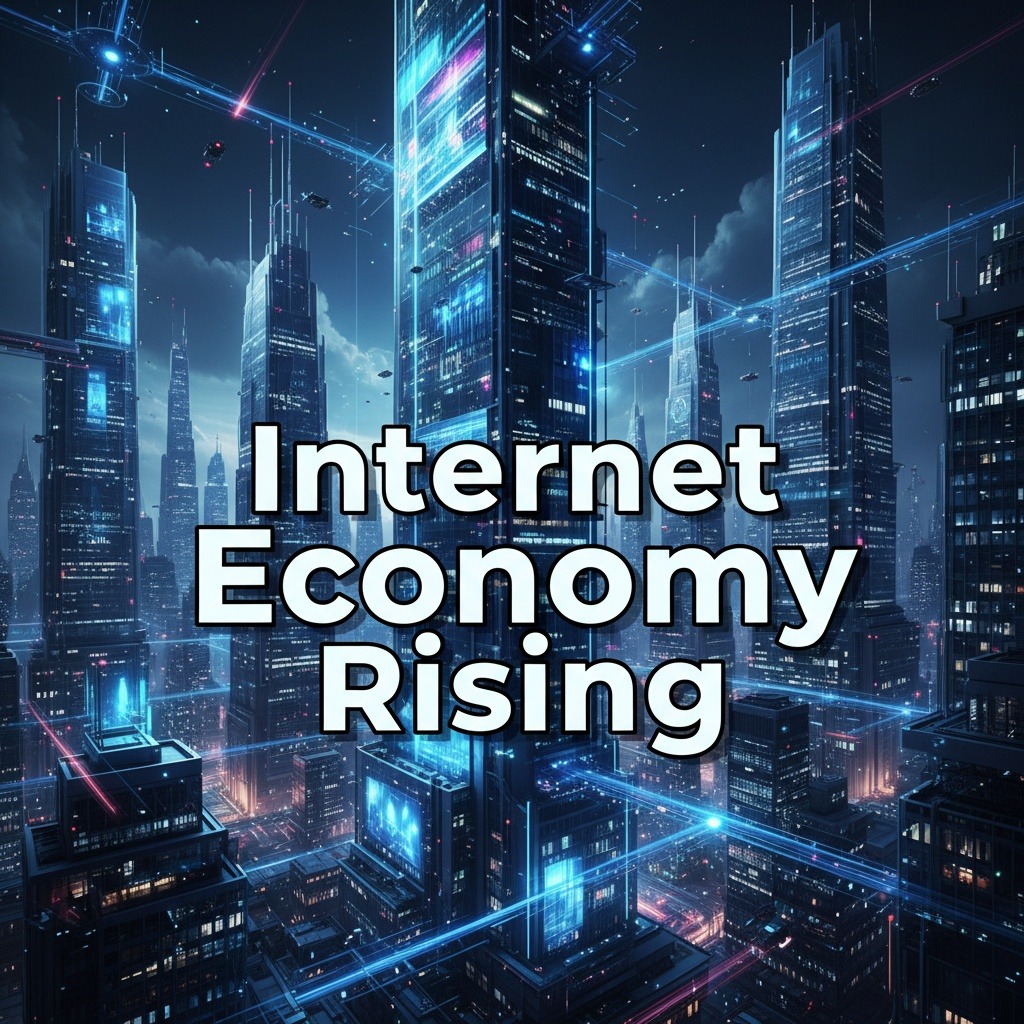The traditional economic landscape in advanced nations is witnessing a significant transformation, transitioning toward an internet-first paradigm, as articulated by Balaji Srinivasan, a former executive at Coinbase and author of “The Network State.” In a recent post on X, Srinivasan emphasized that the “legacy economy is being sunset in favor of the Internet economy.”
To highlight the dramatic shift, Srinivasan shared a chart comparing the buoyant performance of seven leading technology stocks, dubbed the “Magnificent Seven,” against the largely stagnant performance of the remaining firms within the S&P 500 index since 2005. This stark contrast illustrates the prevailing strength of technology and digital platforms in shaping economic trajectories.
The “Magnificent Seven” comprises influential players in the tech sector, including Apple, Microsoft, Amazon, Google’s parent company Alphabet, Meta Platforms, Nvidia, and Tesla—all of which have seen substantial gains, while the broader S&P 500 index has failed to exhibit similar growth.
Srinivasan noted that since the 2008 financial crisis, the migration of transactions and communications to online platforms has gained momentum. He remarked, “We are still at the foot of the mountain. The next step is internet economies, communities, cities, and presidencies. The world is becoming Internet-First.” This observation sheds light on the paradigm shift where the Internet is becoming the foundational pillar of economic systems.
Further expanding on his views, Srinivasan introduced the concept of “Network States,” which refers to decentralized online communities that may soon replace traditional nation-states. He posited that the rise of these network states necessitates the adoption of internet-native currencies, such as cryptocurrencies, representing a pivotal evolution in society akin to the historical shift from agrarian to industrial economies.
The shift towards an internet-first economy is paralleled by a nationwide push in the United States to modernize its financial structures. Unlike the legacy financial system, which often hesitates to embrace technological advancements, regulatory bodies are actively exploring the incorporation of artificial intelligence and blockchain technologies. This modernization effort aims to enhance the efficiency and accessibility of financial markets.
In a joint statement released in September, the U.S. Securities and Exchange Commission (SEC) and Commodity Futures Trading Commission (CFTC) hinted at a potential move towards 24/7 capital markets, mimicking the round-the-clock trading capabilities seen in cryptocurrency. This initiative reflects a broader strategy to integrate the benefits of blockchain technology into the financial sector.
Moreover, the U.S. government is taking steps to promote transparency and accountability in economic reporting by collaborating with oracle providers such as Pyth Network and Chainlink to publish economic data on-chain. This development could signal a newfound embrace of blockchain solutions by traditional government entities.
As this shift toward an internet-focused economy unfolds, it is clear that innovation through technology and digital platforms heralds a new era for financial systems and economic communities. The rapid growth of tech stocks and the rise of decentralized network states are just the beginning of what could prove to be a transformative journey toward an interwoven internet and economic landscape.



